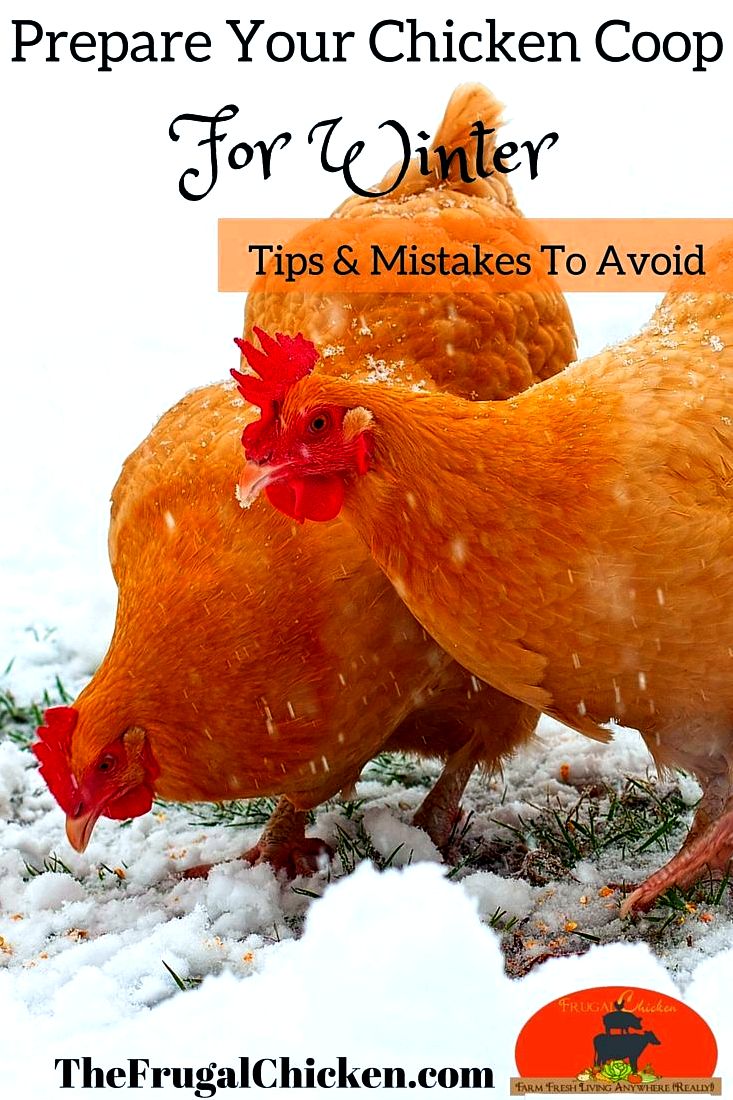
Chickens are among the easiest and many lucrative kinds of animals, appropriate for from small backyard hobby farms to gigantic commercial farming operations. Regardless of what how big your flock, however, winter mistakes can rapidly lower the chickens’ productivity, reduce egg lounging making it a lot more challenging to maintain your wild birds healthy with the very coldest several weeks.
8 Common Winter Chicken Mistakes – And Ensuring You Do Not Make Sure They Are
- Allowing chickens’ water to freeze. Chickens will eat snow in the winter months so it’s fine if their water freezes, right? No! Although some wild birds will eat snow, which will lower themselves temperature making them weaker to hypothermia and illnesses. Liquid water also improves their digestion helping bolster winter egg production. Provide chickens with ample liquid water through heated tanks, temperature-controlled bowls or frequent refills so that they don’t need to be thirsty.
- Putting extra heaters within the coop.Chickens are adaptable wild birds and also be extra lower down to assist insulate their physiques in the winter months. Having a coop supplying shelter, there’s no requirement for supplemental heaters, and actually heaters could be a disaster inside a chicken house. Loose down, bedding and flying wild birds are fire hazards, and heaters can certainly injure wild birds. Rather, block major drafts and add higher insulation levels towards the coop, and also the birds’ body heat could be more than sufficiently warm.
- Blocking all holes, vents and drafts.So many people are obsessive about keeping their chickens warm, and believe that when they aren’t adding heaters towards the coop, then each and every draft and hole should be snuggly connected winter. Once the coop is airtight, however, chickens can suffer severe respiratory system problems in the ammonia that accumulates in feces, in addition to the dust and dirt within the coop. Keep sufficient ventilation within the coop to avoid these complaints.
- Not washing the coop just as much during the cold months.Chickens could be dirty wild birds, and all sorts of coops have to be regularly cleaned therefore the wild birds aren’t susceptible to bacteria, dirt, excess dust along with other uncomfortable conditions. While using deep litter method or shedding boards might help make winter coop cleaning faster and simpler. In areas with severely winters in which the wild birds might not leave their coop for several days at any given time, much more frequent cleanings might be necessary.
- Not supplying stimulation for alone chickens.A bored chicken is definitely an angry bird, and could become stressed, aggressive or exhibit other behavior problems. Without stimulation and workout, chickens’ lounging capacity might also decrease. While chickens won’t go leave the coop just as much during the cold months, indoor entertainment may include a dangling cabbage core to peck, new treats within their daily scratch or perhaps a sheltered run the wild birds can engage in on mild days.
- Keeping chickens at nighttime.Winter days are naturally shorter and when the coop home windows are blocked to help keep the cold, the dark within the coop could be harmful. Less sun light will decrease hens’ lounging productivity and may create stress and depression within the entire flock. Think about using obvious or translucent storm home windows rather, or investigate adding supplemental light within the coop as needed to embellish the chickens’ day.
- Not supplying sufficient roosting space.If chickens are huddled carefully together, they keep warmer, right? No! While close quarters may indeed be warmer, chickens which are packed too tightly within their coop may fight or develop sores from close contact. When all of the wild birds have been in the coop at the same time, there must be sufficient roosting space for each bird, and roosts ought to be a minimum of two ft started so no wild birds have to stand or roost in soiled bedding.
- Fattening chickens up for that winter.Even though many mammals eat more in fall and store larger amounts of fat for winter insulation and, chickens don’t have to do so. Actually, fattening your chickens before winter can result in weight problems and a variety of health issues, including shorter lifespans. This is particularly difficult because the wild birds may have less exercise during the cold months. Rather, adjust chickens’ dietary needs for his or her exercise level, ages and all around health, and not the season.
You can easily avoid these common errors and your flock healthy, happy and productive completely to spring.
Tags: chicken, greatest, winter
Comments are closed here.
